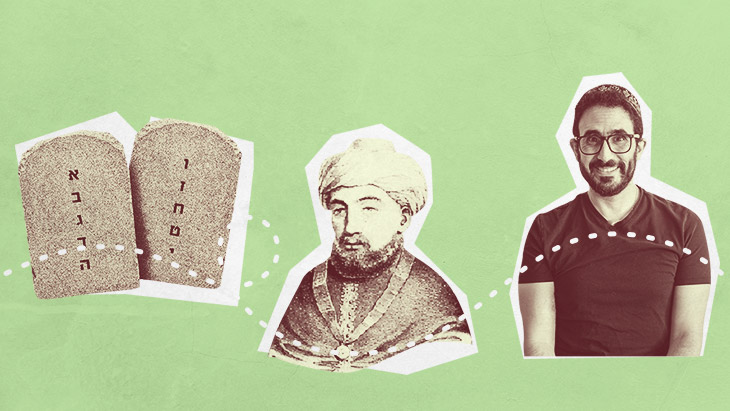 Raise a Glass to Freedom
Raise a Glass to Freedom


4 min read
I am not just connected to my roots. I am living them.
A sense of Jewish history connects a Jew to his roots. It can also cloud those roots.
Here is what I mean. If we ask, why be Jewish, Jewish history is one answer. There are many variations on the answer, but each one draws a Jew back in time, fostering a feeling of identity with Judaism or the Jewish people. Even so, these answers rarely take us back far enough. Consider the following reasons for connecting to Jewish history:
I want to keep my own family customs alive.
I do not want the Holocaust to be the end of the Jewish people.
I know my passion for social justice comes from Jews always being the underdog.
I relish research into my own genealogy. The more I learn about my past, the more I feel connected to it and proud of it, whether I am an Ashkenazi from Eastern Europe or a Sephardi from Spain, Greece or Iraq.
I get the chills when I see Israel reborn.
I sit in a philosophy class and feel special pride when Maimonides is held up as a major philosopher.
I study about Rabbi Akiva, Rashi and the mystics in Safed, and I know I am connected to an eternal people.
In the long arc of Jewish history, all of these examples are relatively recent. They are kind of like touring Independence Hall in Philadelphia and feeling connected to the American Revolution more than 240 years ago, but then thinking of standing before the Western Wall, some 2,000 years old. As in, 240 years, big deal!
I do not mean to discount my feelings of awe and gratitude upon visiting Independence Hall. But compared to Jewish memory, 240 years is a blink.
The thing is, we may say the same even for the 2,000-year-old Western Wall, the most powerful, emotional site in Judaism. My sense of Jewish history may cloud just how far back my roots actually stretch. Just as we may skip over the Holocaust and Maimonides and our personal genealogy to reach back so much further to the Western Wall, we may skip back further still.
Take, for example, the one topic that occupies the entire, 2,711 folio-page Babylonian Talmud more than any other: “carrying,” the prohibition of transferring objects from one domain to another, or of carrying objects within a public domain, on the Sabbath.
For those who do not observe this prohibition, I appeal to your intellectual curiosity. Where did this come from? It originates neither with Maimonides nor in the Talmud. It is not from the ancient Holy Temples nor even from the Prophets of Israel (save one). We stretch back not to the Holocaust 75 years ago, not to Maimonides 800 years ago, not to the Western Wall 2,000 years ago, not even to the Prophet Isaiah, some 2,800 years ago.
Our roots go all the way back to the first Prophet, Moses, in the Sinai desert after the Exodus.
We recall the generation of the desert, of the liberated Hebrew slaves from Egypt, not just in a ritual (the seder), not just as Jewish history, and not just as abstractions (“the beginnings of the Jewish people” or “the inception of the Jewish-Divine covenantal relationship”). No, we recall Moses in the desert for something very specific that was done then and sustained throughout the generations, down to this very next Shabbos.
When the Tabernacle was under construction in the desert, as God had commanded in the Book of Exodus, our ancestors volunteered the raw materials, the fibers, precious metals and animal skins out of which the Tabernacle was made.
One fine day, on a Shabbos, Moses told the entire encampments of the Israelites: Bring no more! Why? Because on Shabbos one is not to transfer from one domain to another; specifically, from the private domain (the Israelites’ homes, their tents) to the public domain, the Levite camp, where Moses was stationed and the Tabernacle was to be constructed (Shabbat 96b).
Think of this. On the very next Shabbos that I welcome this year – me, you, here, right now – if I refrain from carrying an object out of my home, I am under the spiritual canopy of Moses himself, of my people at its very inception. I am a direct link to the Israelite sojourn in the Sinai desert and to one of the first Words embraced in practice after the revelation at Mount Sinai.
I am not just connected to my roots.
I am living them.
This article won a 2020 Simon Rockower Award for Excellence in Commentary and was originally published in the Intermountain Jewish News.
